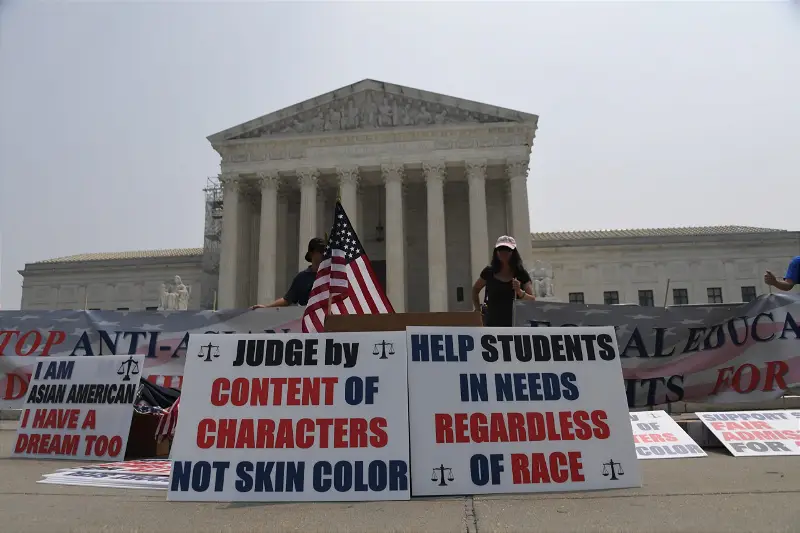The US Supreme Court issued a ruling on Thursday that prohibits the use of race and ethnicity as factors in university admissions. This decision represents a significant setback to a long-standing practice that aimed to increase educational opportunities for African-Americans and other minority groups.
Chief Justice John Roberts, in the majority opinion, stated that students should be evaluated based on their individual experiences rather than their race. The court’s decision was divided along conservative-liberal lines, with six justices supporting the ban and three dissenting.
Conservative opposition to “affirmative action” policies, which seek to promote diversity in school admissions, as well as in business and government hiring, has grown over the years. The court clarified that universities can still consider an applicant’s personal experiences, such as encountering racism while growing up, when assessing their application alongside their academic qualifications. However, making decisions primarily based on the applicant’s race is considered a form of racial discrimination.
The court ruled in favor of Students for Fair Admissions, an activist group that sued Harvard University and the University of North Carolina (UNC) over their admissions policies. The group argued that race-conscious admissions practices disadvantaged equally or better-qualified Asian American applicants competing for admission to these institutions.
Harvard, UNC, and other competitive US schools have implemented affirmative action policies to ensure a diverse student body and representation of minorities. These policies originated from the Civil Rights Movement in the 1960s, aiming to address the historical discrimination faced by African Americans in higher education.
The Supreme Court’s ruling represents a victory for conservatives who believe affirmative action is fundamentally unfair. Some argue that such policies are no longer necessary due to improved educational opportunities for African Americans and other minority groups.
However, the decision is a significant setback for progressives, coming one year after the court’s overturning of the landmark 1973 “Roe v. Wade” decision, which guaranteed a woman’s right to abortion. The erosion of federally protected abortion rights quickly resulted in half of the states implementing bans or severe restrictions on the practice.
Similarly, the ruling against affirmative action could prompt many states and institutions to discontinue programs aimed at providing additional consideration to disadvantaged minority applicants in the competitive college admissions process.
Justice Sonia Sotomayor, leading the dissenting opinion, expressed concern that the decision undermines decades of progress and firmly establishes a superficial “colorblindness” principle in a society still plagued by segregation.
Read Also: Chinese Military launch’s new rule to control social lives of top generals










